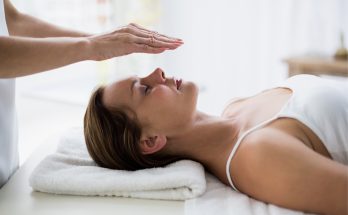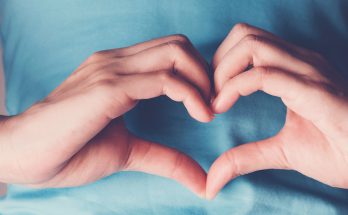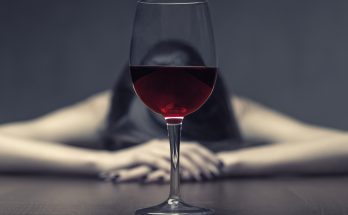Social media is an interesting place. It can entertain and even help us, but it can also breed a lot of comparison, especially surrounding body image, that can negatively impact our self-worth.
Pinterest believes it can help. As of July 1, Pinterest banned all weight loss ads on their platform. It highlighted the increase of body image struggles and eating disorder rates since the start of the pandemic, and says it wants users to have a safe place to enjoy their favorite things.
“Pinterest is the place people come for inspiration to create the life they love. It’s where everyone belongs — regardless of body shape or size. We’re empowering Pinners to plan for a summer and beyond without weight loss ads, so they can focus on what matters most,” the social media company wrote.
Its updated policy now not only prohibits weight loss pills and procedures, but also body mass index (BMI) references, before-and-after weight loss images, and anything that idealizes or demoralizes a certain body type, and more.
While many area applauding this and think it’s great, some people may still wonder, is it the right choice? Is it even okay to want to lose weight anymore?
A psychologist weighs in
According to Dr. Allison Chase, a psychologist with Eating Recovery Center, this is a great decision. “Pinterest’s decision to ban weight loss ads and content is very timely, as pandemic stress has caused many people to turn to unhealthy coping mechanisms, such as overeating,” she said.
She believes banning certain content on social media specifically is incredibly helpful since it’s a hotbox for comparison. “While social media can offer users a way to connect with one another and provide a form of entertainment, it can also create an environment in which users compare their bodies to idealized images that can set them up for unrealistic expectations and lead to disordered behaviors in some,” Dr. Chase explained.
Here’s how that happens: Content that moralizes certain body sizes and encourages weight loss products can create an unrealistic beauty standard. “This content can lead to unrealistic and unhealthy body image issues and expectations in some,” Dr. Chase said. “For example, for a teen who struggles with disordered eating or other forms of mental health issues, these ads and before/after photos can be very damaging and lead to problematic behaviors.” They may restrict, purge, or engage in other dangerous eating habits.
No one — regardless of age, size, gender, et cetera — is completely immune to society’s pressures around what you should eat and how you should look. Many people think teenagers struggle the most, and they do struggle a lot: Over 62 percent of teen girls and almost 29 percent of teen boys reported trying to lose weight.
Other helpful practices for people struggling with food and their body
Remember, you’re not alone in what you’re experiencing, and many forms of help are available. Below are resources and skills that can help you handle any struggles you have surrounding food and/or your body image:
● Treatment at the Eating Disorder Recovery Center
● Free, therapist-led support groups with The Alliance for Eating Disorders Awareness
● Texting HOME to the Crisis Text Line (741741 for the US and Canada, 85258 for the UK, and 50808 for Ireland)
● Avoiding triggers, such as other social media apps, as much as possible
● Body image worksheets and activities on the Positive Psychology website
● Being mindful of how you talk about food and weight, especially in front of your kids/teens
Remember you don’t need to sweat the “quarantine 15” because health is more than weight, your worth isn’t tied to your weight, and dieting can be dangerous. Trust your body and cut yourself a break!



